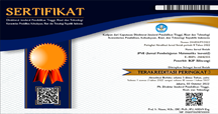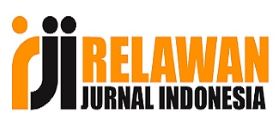KETERAMPILAN PEMECAHAN MASALAH KOLABORATIF SISWA SMP YANG BERBEDA ADVERSITY QUOTIENT PADA MATERI SEGIEMPAT
DOI:
https://doi.org/10.22460/jpmi.v5i2.10353Keywords:
Collaborative problem solving skills, quadrilateral, adversity quotientAbstract
This study aims to describe the collaborative problem solving skills of students SMP with category quitter, camper, dan climber on quadrilateral. Three subjek were selected through adversity response profile questionnaire. The instruments used are problem solving test, observation sheet and interview. The results showed that collaborative problem solving skills at the stage of exploring and understanding the problem, quitter student abilities needed assistance from camper dan quitter students to understand the problems in the problem solving test so that information transfer occurred between group friends. After getting help, at the stage of representing and formulating quitter students can identify and describe problem solving tests in their own language, while camper and climber students do not experience problems in representing and formulating the tests given. At the stage of planning and implementing the camper and climber students communicate about the plans and actions that are being or will be taken. However, quitter students do not communicate about plans and actions that are being or will be taken. At the monitoring and evaluating stage, quitter, camper and climber students monitor the results of their actions and evaluate each other's solutions that have been obtained. At this stage, camper students produce different solutions, and climber students correct these solutions.
References
Aisyah, P. N., Khasanah, S. U. N., Yuliani, A., & Rohaeti, E. E. (2018). Analisis kemampuan pemecahan masalah matematis siswa pada materi segiempat dan segitiga. JPMI (Jurnal Pembelajaran Matematika Inovatif), 1(5), 10–20. https://doi.org/10.26877/aks.v12i1.7202
Bosworth, K. (1994). Developing Collaborative Skills in College Students. New Directions for Teaching and Learning. https://doi.org/http://dx.doi.org/10.1002/tl.37219945905
Dillenbourg, Pierre, E. (1999). Collaborative Learning: Cognitive and Computational Approaches. Advances in Learning and Instruction Series. New York: Elsevier Science, Inc.
Doorman, M., Drijvers, P., Dekker, T., van den Heuvel-Panhuizen, M., de Lange, J., & Wijers, M. (2007). Problem solving as a challenge for mathematics education in The Netherlands. ZDM - International Journal on Mathematics Education, 39(5–6), 405–418. https://doi.org/10.1007/s11858-007-0043-2
Fahyuddin, F., Liliasari, L., Sabandar, J., & Martoprawiro, M. A. (2015). Perbandingan Metode Kolaboreasi dengan Contoh Tugas dan Belajar Individual dalam Pengembangan Kemampuan Pemecahan Masalah Kimia. Cakrawala Pendidikan, 34(1), 34–46.
Graesser, A., Kuo, B. C., & Liao, C. H. (2017). Complex problem solving in assessments of collaborative problem solving. Journal of Intelligence, 5(2), 1–14. https://doi.org/10.3390/jintelligence5020010
Greenberg, A. D., & Nilssen, A. H. (2015). The Role of Education in Building Soft Skills. Wainhouse Research, (April).
Lai, E. R. (2011). Collaborations: A Literature Review. London: Pearson.
OECD. (2013). PISA 2012 Assessment and Analytical Framework: Mathematics, Reading, Science, Problem Solving and Financial Literacy. PISA, 1–283. https://doi.org/10.4324/9781003090366
OECD. (2016). PISA 2015 Assessment and Analytical Framework: Science, Reading, Mathematic and Financial Literacy. PISA. https://doi.org/https://doi.org/10.1787/9789264255425-en.
OECD. (2019). PISA 2018 Results: What Students Know and Can Do. PISA, I. https://doi.org/10.1787/g222d18af-en
Sears, D. A., & Reagin, J. M. (2013). Individual versus collaborative problem solving: Divergent outcomes depending on task complexity. Instructional Science, 41(6), 1153–1172. https://doi.org/https://doi.org/10.1007/s11251-013-9271-8
Siswono, T. Y. E. (2019). Paradigma Penelitian Pendidikan. Bandung: PT Remaja Rosdakarya.
Stoltz, P. G. (2000). Adversity quotient: Turning barriers into opportunities. Jakarta: Grasindo.
Stoltz, P. G. (2005). Adversity Quotient: Turning Obstacles into Opportunities (Mengubah Hambatan Menjadi Peluang). Jakarta: PT. Grafindo.

















